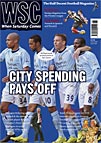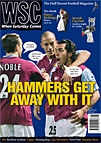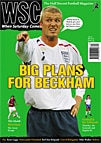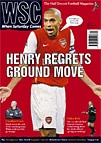 On the 25th anniversary of the start of the national miners’ strike, Jon Spurling looks at the industry’s long-established links with professional football that have since been swept away
On the 25th anniversary of the start of the national miners’ strike, Jon Spurling looks at the industry’s long-established links with professional football that have since been swept away
Twenty-five years ago football and coal mining had in common the fact that Margaret Thatcher clearly didn’t see a long-term future for either within British society. In 1985, a Socialist Worker article drew parallels between the 1984 “Battle of Orgreave”, where around 10,000 pickets squared up to as many police, with the violence at Kenilworth Road during a Luton v Millwall FA Cup tie in 1985: “The images of violence and of raging anger (although those witless football fans have no cause at all) lead us to question whether the fabric of society is close to collapse in Thatcher’s Britain.” Two years after the strike ended, at a time when the minister for sport Colin Moynihan mooted the idea of a compulsory membership scheme to curb hooliganism, a letter to the Guardian expressed a fear that “a high handed government, with sheer contempt for the working classes, is, if one looks at recent events, attempting to utterly destroy two bastions of working class Britain.” To take the comparison to its conclusion, both industries had been irrevocably altered by the late 1980s. In the wake of the Taylor Report into the Hillsborough disaster, and Italia 90, football would become gentrified, and machines replaced workers as colliery closures continued apace. “The working class’s links with both football and mining were, directly or indirectly, rightly or wrongly, severed by Thatcher’s government,” remarked former Labour MP Roy Hattersley in 1992.


